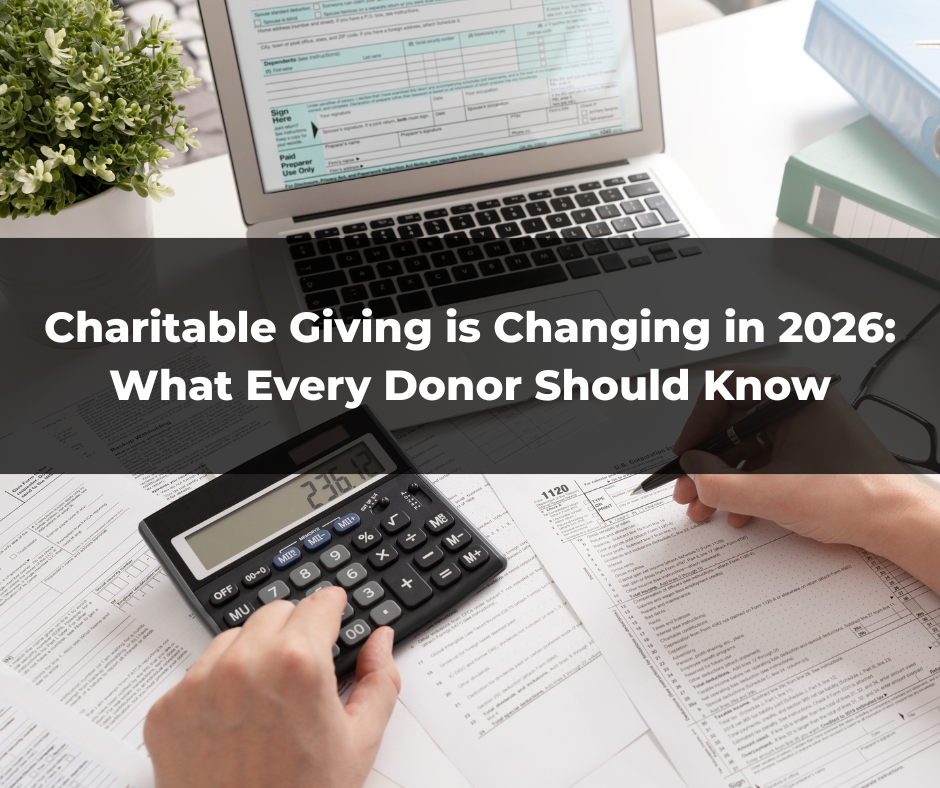Starting in 2026, new federal tax rules will affect how charitable giving is treated — and when you choose to give could make a difference. Whether you itemize deductions or take the standard deduction, these updates may change how much of your charitable giving is deductible.
For Donors Who Itemize
If you itemize deductions on your tax return, new limits will take effect in 2026:
- New 0.5% AGI floor: Only charitable contributions that exceed 0.5% of your adjusted gross income (AGI) will be deductible.
- Cap on high-income deductions: For those in the top tax bracket, the value of itemized deductions will be limited to 35¢ per $1 donated — instead of the current marginal rate.
- Traditional AGI limits still apply: You may deduct up to 60% of AGI for cash gifts to public charities and 30% for appreciated assets.
Planning tip: If you plan to make a significant gift, consider completing it by December 31, 2025 to take full advantage of current deduction rules.
For Donors Who Take the Standard Deduction
Good news for those who don’t itemize: starting in 2026, you’ll be able to deduct a portion of your charitable giving.
- You may deduct up to $1,000 in cash gifts to eligible public charities (or $2,000 if married filing jointly).
- This deduction applies only to cash gifts to public charities, not to donor-advised funds or private foundations.
Planning tip: If you typically take the standard deduction, it may make sense to delay your next gift until early 2026 to take advantage of the new rule.
Additional Giving Strategies
- Qualified Charitable Distributions (QCDs): If you’re age 70½ or older, you can make direct gifts from your IRA to a charity (up to $108,000 per person in 2025) that count toward your required minimum distribution and aren’t taxed as income.
- “Bunching” donations: If you itemize, you might consider “bunching” several years of giving into 2025 — for example, by contributing to a Donor-Advised Fund (DAF) now and recommending grants over future years.
The Bottom Line
2025 offers a unique opportunity to align your charitable goals with smart tax planning. Every donor’s situation is different, so talk with your financial or tax advisor about what timing works best for you — and your heart.
Disclaimer: The National Blood Clot Alliance (NBCA) is sharing this information to help you plan ahead. This information is provided for educational purposes only and does not constitute tax or legal advice. Please consult your tax advisor for advice specific to your situation.
NBCA is a 501(c)(3) nonprofit organization. Contributions are deductible to the extent permitted by law.
To make a year-end donation online, click here.
For other ways to donate, including stock, crypto, and donor advised funds, click here.







